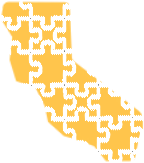It's Official: GPCI Reimbursement Adjustments Coming to CA Workers' Comp

California’s Division of Workers’ Compensation (DWC) has pulled the trigger: Geographic Practice Cost Indices (GPCI) will take effect on January 1, 2019. GPCI will divide the state of California into 32 distinct pricing regions, adjusting reimbursements for Physician and Non-Physician Practitioner services based on specific location.
The plan is an effort to more fairly compensate workers’ comp providers with respect to the widely varying costs associated with running a practice in different areas.
The GPCI Debate
GPCI is the system Medicare uses to adjust reimbursements according to location. The DWC declined to adopt earlier versions of GPCI as being too unrefined to accurately reflect provider costs across California. However, the Division now believes the current, more nuanced GPCI system is up to the task.
After months of discussion, the DWC issued a Newsline announcing their adoption of new amendments to the Official Medical Fee Schedule (OMFS). These amendments replace the current average statewide geographic adjustment factor with Medicare GPCI.
The move followed an April public hearing, as well as a 15-day comment period this past September. A variety of concerns regarding GPCI forced the DWC to proceed cautiously and seek public input before making this significant change to the OMFS. Specifically:
-
Whether GPCI will adjust reimbursements fairly: Are the new pricing zones targeted accurately enough to reflect the varying costs of doing business across a huge, economically diverse state?
- Whether GPCI will create opportunities for provider fraud: Will physicians and practitioners attempt to bill from incorrect locations, to reap the highest reimbursement?
- Whether GPCI will create opportunities for payor-side friction: Will claims administrators adjust bills according to incorrect locations, to remit the lowest reimbursement?
- Whether GPCI will limit options for rural patients: Will providers in lower-cost pricing zones conclude that treating injured workers is no longer worth the hassle, given reduced reimbursements? Will workers in those zones suffer reduced access to care?
- Other provider reimbursements: should the OMFS also compensate non-physicians/practitioners (such as physical therapists and interpreters) with respect to location?
While these concerns remain, the DWC is pressing forward. The Division submitted amendments to California Code of Regulations (CCR) Sections 9789.12.1 through 9789.19.1 to the California Office of Administrative Law, which will in turn file the amended sections with the Secretary of State for official inclusion in the regulations.
The debate is over. Come January 1, California workers’ comp will add a new layer of complexity to billing and payment, for better or worse.
With GPCI, calculating reimbursement is about to get more complicated. Fortunately, our OMFS Calculator is up to the challenge. Try the Calculator today, with a free trial of our Work Comp Wizard.
TRY THE CALCULATOR
DaisyBill provides content as an insightful service to its readers and clients. It does not offer legal advice and cannot guarantee the accuracy or suitability of its content for a particular purpose.



